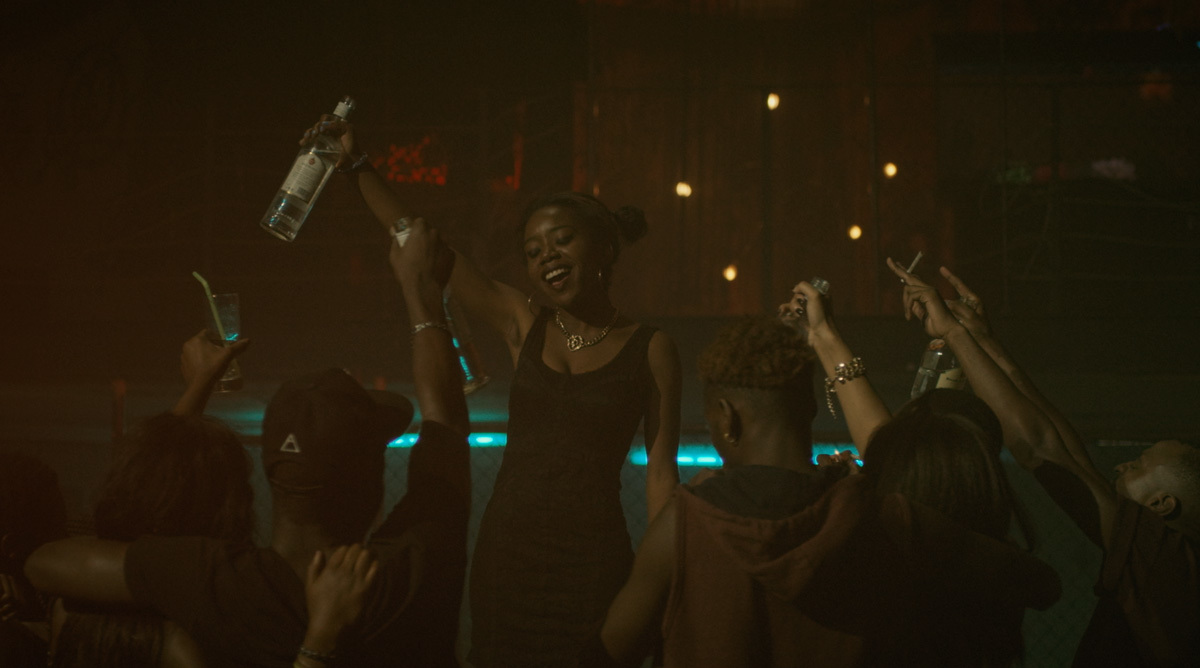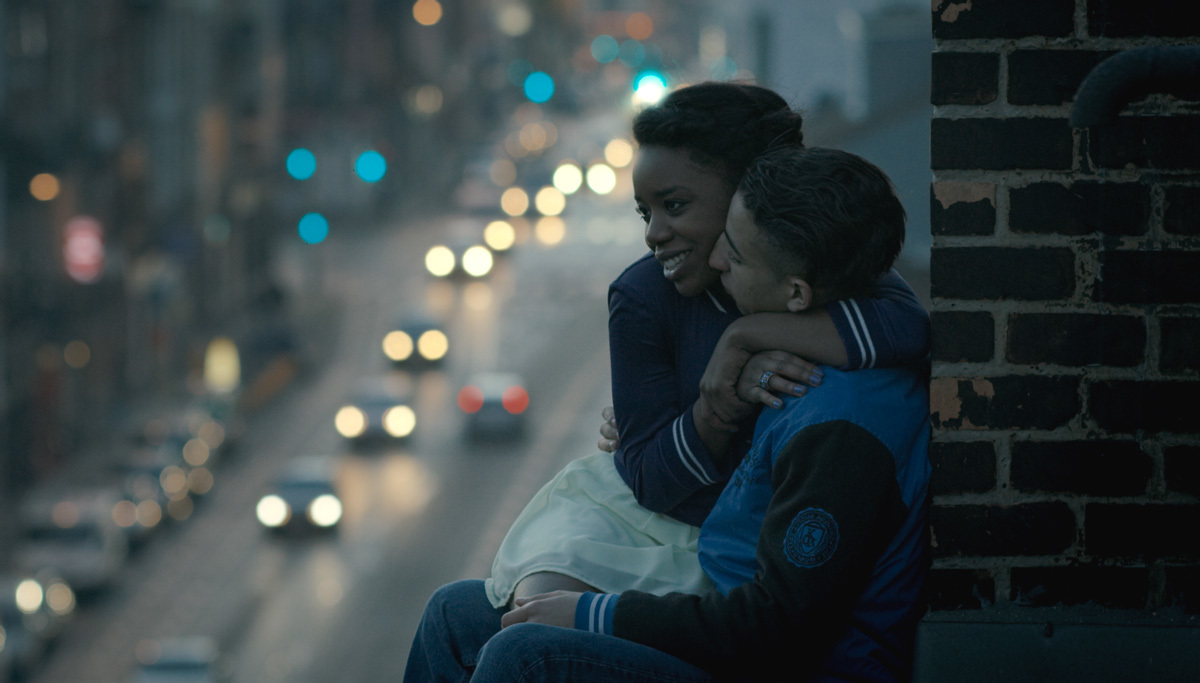If your impression of Brussels is European bureaucracy, prepare for the eye opening alternative take on the city in Black. Directed by Adil El Arbi and Bilall Fallah, Black is a love story set against gang violence in migrant populations in the Belgian capital. It is also proving a window unto the city’s emerging talent pool.
Billed as West Side Story by way of La Haine, Black sees 15-year-old Mavela (Martha Canga Antonio), fall for rival gang member Marwan (Aboubakr Bensaihi). The film won a debut award at Toronto film festival; on the back of Black’s dazzlingly confidence action, its directors have wooed Hollywood, signing up to direct Beverly Hills Cop 4, and a new U.S. TV show, Snowfall, on the 1980s crack cocaine epidemic in LA, co-written by Boyz in the Hood’s John Singleton.
But Black has another star in the making in front of the camera: 21-year-old Martha, a communication management student, who was was recently named one of the eight rising stars from Berlin Film Festival. The daughter of Angolese immigrants, Belgian born Martha speaks five languages, sings in a trilingual hip-hop collective, and in Black nails the complications of the immigrant experience through her character. On the phone from her hometown of Mechelen, she tells i-D about identity politics, prejudice, and dreaming big.
Black is adapted from a novel, which you’d been reading just before you auditioned for the role. What did you like about the book?
First of all, it’s a beautiful love story. It’s two people who are completely different and fall in love and will do everything to stay together. Also, it’s a story about Brussels which I didn’t know. It was an introduction into a new world.
The filmmakers made you watch City of God, La Haine, and Blue is the Warmest Color to get into the right frame of mind for Black. What did each inspire?
City of God was for the atmosphere and the violence. La Haine was for the feelings, these hard feelings you get when you see it. Blue is a love story, a very natural movie in which it doesn’t feel like they’re acting.
What did you like about your character Mavela?
I could recognize myself, not in her environment or the place she grew up in. But the way she was, as a 15-year-old girl. Everyone who enters puberty, every woman who was 15 can recognize herself. It’s a girl who wants to fit somewhere, is looking for herself, who thinks that love is everything. She also thinks she knows everything; she thinks she knows more than her mom in the way 15-year-old girls or boys do.
In the film, Mavela’s mom is keen to integrate into Belgian society. Your character feels she will never be accepted.
I think that happens a lot. The best state of mind for me is to be in between both characters. Both are extremely different. The girl is saying that Belgians don’t love them, they will never fit in, they will never be seen as one as them. Her mother wants to integrate but she’s going to sacrifice who she is and where she comes from to do that.

Can you describe your identity?
You just have to be between those two. For me, I’m Belgian. I was born here. But that doesn’t mean I forget where my parents came from and where my roots are. I’m a proud Belgian even if some people don’t think of me as Belgian. If I go back to Angola, I can go back and say I’m a proud Angolese person even if not everyone sees me as a Angolese. The best way is to be in between, to not put yourself out of society and be against everything. If you do that, you will not be able to get on with your life. You can fit in but not forget who you are and what you’ve come from.
Have you experienced that prejudice?
You can experience it everyday. I was on a bus when I was very young and there was only one seat. My mom let me sit and it was next to an old woman and she stood up and look disgusted because she didn’t want to sit next to me. Such things happen. When you are looking for work, if you send a letter or talk on the phone, they might say come in and you’re there and they say we already found someone. I experienced that. That doesn’t stop me. That’s the most important thing, not to be stopped by people who have a closed and dark mentality or state of mind.
Tell us about your musical collective, $oul’Art
It’s a trilingual hip-hop collective. We have a Nigerian who raps in English, he speaks very good English, one in French and Dutch, a singer who sings in French and I sing in English. At first it was just coincidence, to sing a rap in the language you feel best at it. But then we saw we could break linguistic barriers in Belgium. Normally Flemish music stays in Flanders, French music, especially French hip-hop, stays in the French part. So we’ve played in these parts.
How was it working with Adil El Arbi and Bilall Fallah for Black?
They really deserve it. From the moment I met them they were saying, yeah we’re going to Hollywood. Some people would be like, yeah right everybody wants to go to Hollywood. And they did it! And it’s beautiful. It just proves that nothing is impossible. If you turn your dreams into plans, you can do it. It’s nice. It makes people dream here.

Credits
Text Colin Crummy
